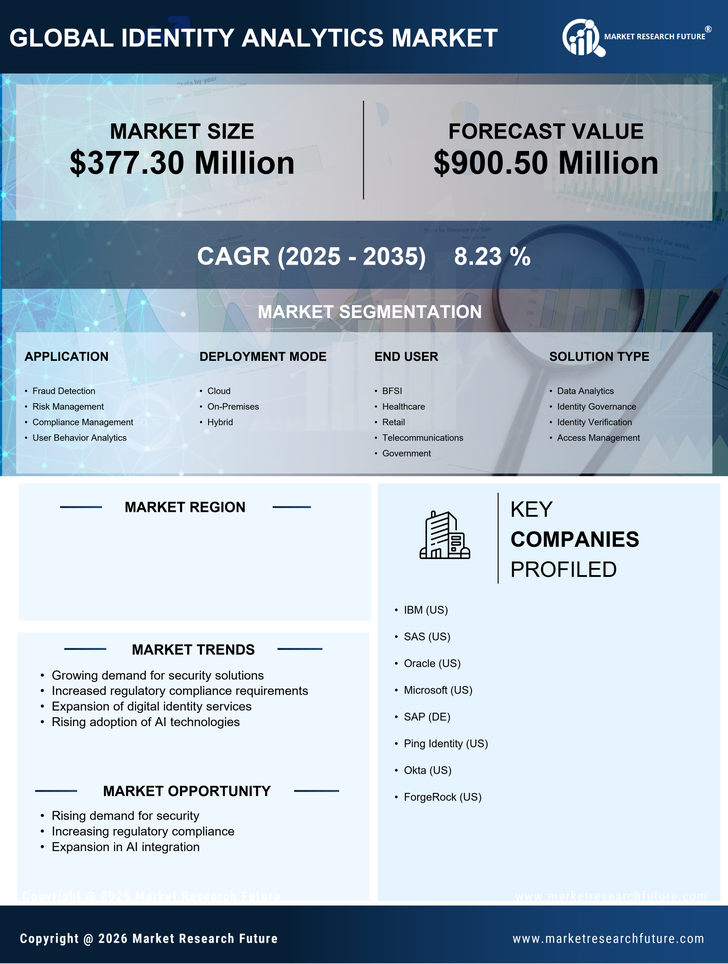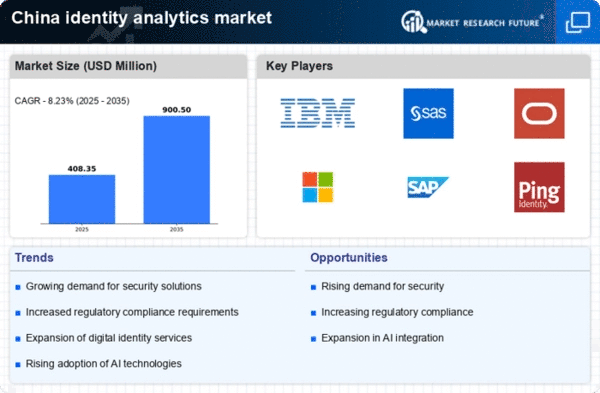Rising Incidence of Identity Fraud
The alarming rise in identity fraud cases in China is a significant driver for the identity analytics market. Reports indicate that identity theft incidents have surged by 30% in recent years, prompting businesses to seek advanced analytics solutions to combat this threat. Organizations are increasingly aware that traditional security measures are insufficient, leading to a growing reliance on identity analytics to detect and prevent fraudulent activities. This heightened focus on fraud prevention is likely to propel the market forward, as companies invest in technologies that provide real-time insights and enhance their overall security posture.
Expansion of E-Government Initiatives
The Chinese government's push towards e-government initiatives is creating new opportunities for the identity analytics market. As public services become more digitized, the need for secure identity verification systems is critical. The government aims to streamline processes and improve service delivery, which requires robust identity management solutions. This trend is likely to drive market growth, with projections indicating a potential increase in market size by 15% annually over the next five years. The identity analytics market is expected to play a crucial role in ensuring that citizens' identities are protected while accessing government services online.
Integration of Biometric Technologies
The integration of biometric technologies into identity verification processes is transforming the identity analytics market. In China, biometric solutions such as facial recognition and fingerprint scanning are gaining traction, particularly in sectors like banking and retail. This trend is driven by the need for more secure and efficient identity verification methods. The market for biometric identity analytics is projected to grow by 25% over the next five years, as organizations seek to enhance user experience while ensuring security. The adoption of these technologies not only improves accuracy in identity verification but also reduces the risk of unauthorized access, thereby bolstering the overall integrity of identity management systems.
Increased Adoption of Digital Services
The rapid digitization of services in China is significantly impacting the identity analytics market. With more businesses transitioning to online platforms, the need for secure identity verification processes has become paramount. The market is expected to reach a valuation of $1 billion by 2026, driven by the surge in e-commerce and digital banking. Companies are increasingly investing in identity analytics to mitigate risks associated with identity theft and fraud. This shift towards digital services necessitates sophisticated analytics tools that can analyze user behavior and detect anomalies in real-time, thereby enhancing security measures across various sectors.
Growing Demand for Data Privacy Solutions
The increasing awareness of data privacy among consumers in China is driving the identity analytics market. As individuals become more concerned about how their personal information is used, organizations are compelled to adopt robust identity analytics solutions to ensure compliance with privacy regulations. The market is projected to grow at a CAGR of 20% from 2025 to 2030, reflecting the urgency for businesses to protect sensitive data. This trend is particularly pronounced in sectors such as finance and healthcare, where data breaches can lead to severe penalties and loss of consumer trust. Consequently, the identity analytics market is evolving to offer advanced solutions that not only enhance security but also foster consumer confidence.

















